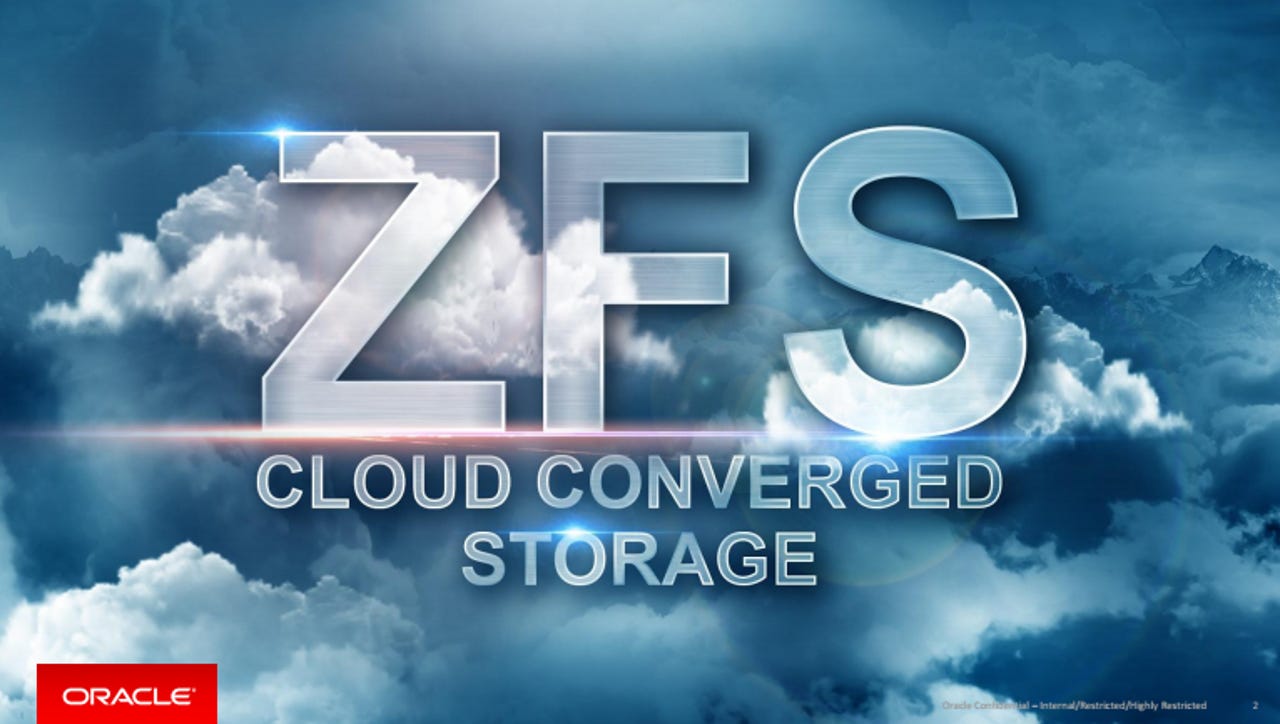Oracle's ZFS Cloud unifies cloud with on-premise systems


Intent on proving itself as a major Infrastructure-as-a-Service (IaaS) provider, Oracle on Wednesday is rolling out a service that none of its competitors can offer -- public cloud services directly converged with high-performance on-premise storage.
The Oracle ZFS Cloud integrates the Oracle Storage Cloud with the operating system of Oracle's ZFS High Performance Storage Appliance.
"We've essentially made cloud storage as simple as taking your iPhone and clicking on, 'Yes, I want to use iCloud,'" Steve Zivanic, VP of storage & cloud IaaS at Oracle, told ZDNet.
Companies are increasingly adopting hybrid cloud strategies, but they often "don't realize how complex [storage providers] make it," Zivanic said.
To build a hybrid cloud solution, customers have to buy external cloud gateways. They also typically have to pay their hardware vendors "cloud access licenses" for the right to access public storage from their infrastructure platforms.
"There's no value added, and people are starting to look for more direct routes" to the cloud, Zivanic said.
The Oracle ZFS Cloud also streamlines infrastructure management, enabling businesses to use the same security requirements, support teams, standards and skill sets to support their on-premise and cloud environments.
"If you have data latency, or corruption, or data loss... we can triage any issue from multiple points of presence, from on-premise datacenters to the public cloud," Zivanic said. By contrast, a customer taking a multi-cloud approach would receive fragmented support -- their public cloud provider would have no visibility into their on-premise datacenter.
"'We're making hybrid IT actually unified, as opposed to separate pieces where the burden is put on the customer to become a system integrator," Zivanic said.
How Bitly migrated from colo to cloud to save money, future-proof its innovation path: